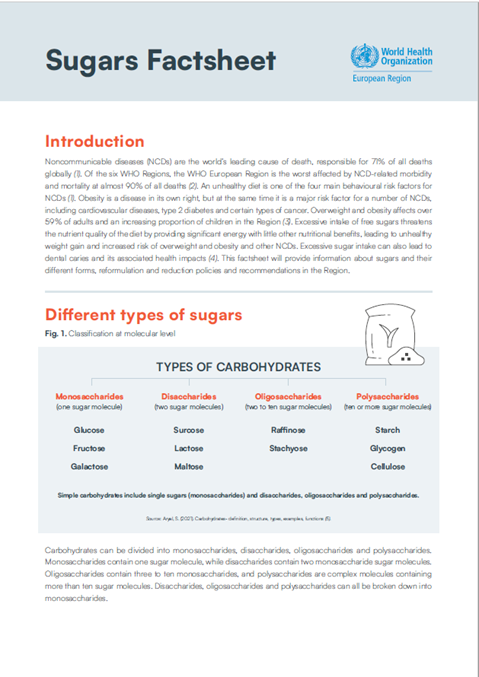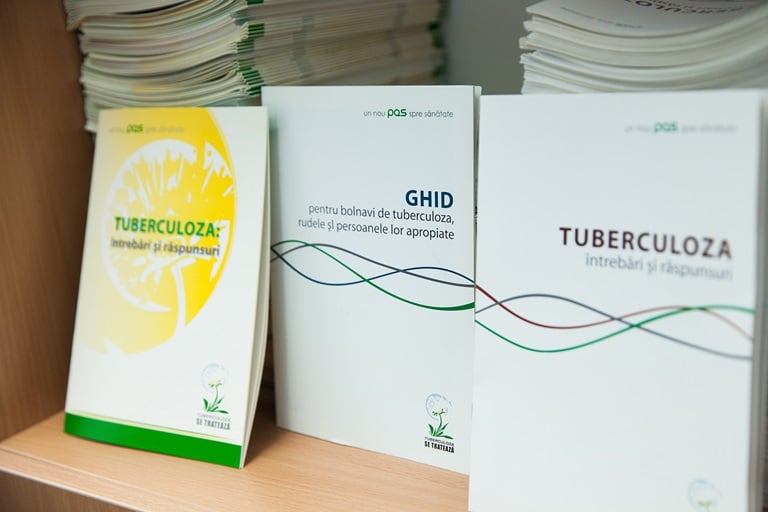Sugars factsheet

Publications
Water, sanitation and hygiene (WASH) services, including waste management and environmental cleaning, are fundamental to quality care, infection prevention...
Legionella infections represent a significant health burden in the pan-European region; in many countries it is considered among the most important waterborne...
Unhealthy bodyweight in children affects physical and mental health, school performance and quality of life, while also raising the risk of obesity and...
The Workshop on wastewater and environmental surveillance (WES) for public health in central Asia, held on 5 June 2025 in Astana, convened national and...

WHO Regional publications - other Regions
